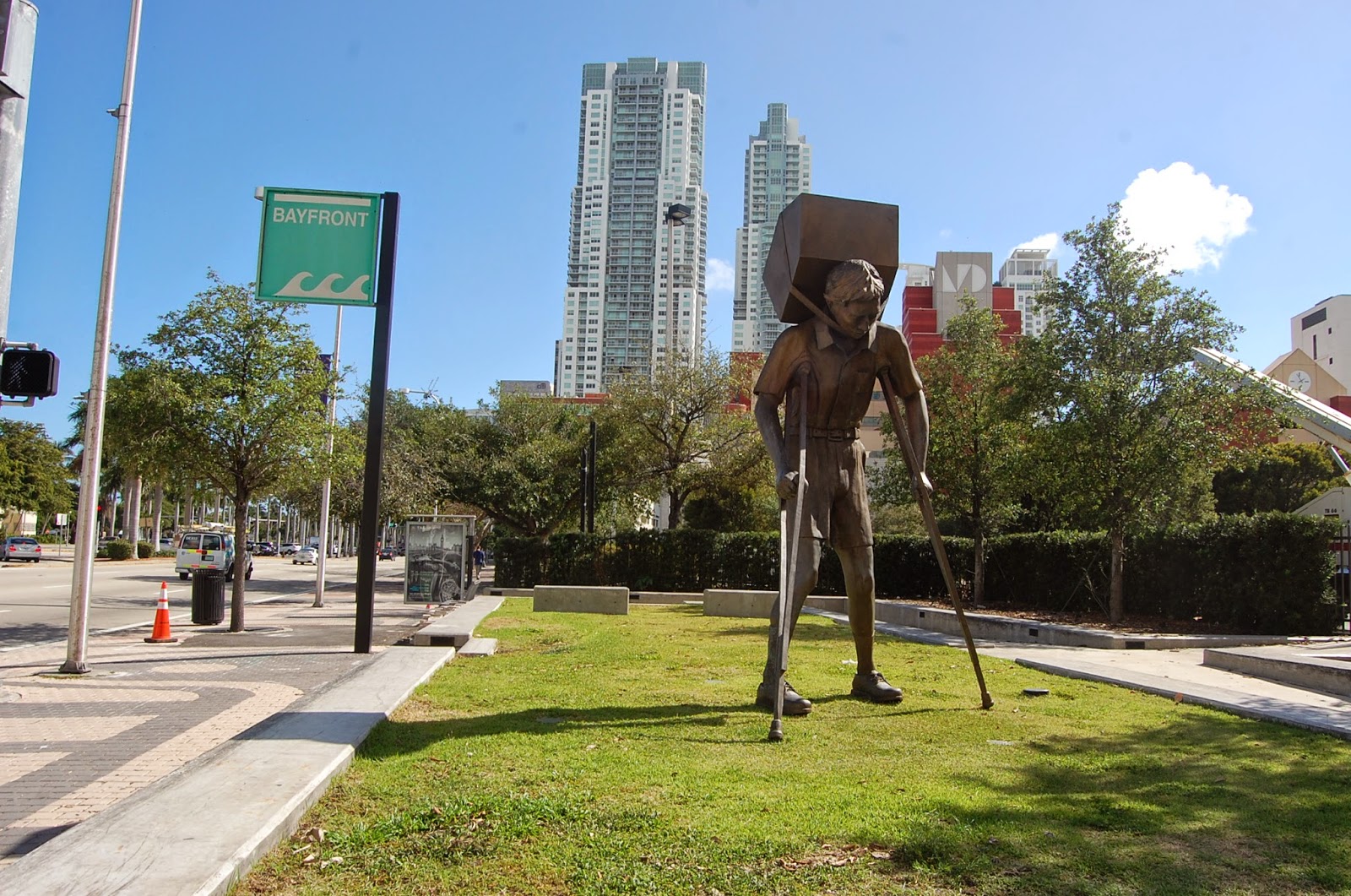As a (previous) resident of South Florida (specifically, Fort Lauderdale), it shocks most people when I tell them that I've only been to Miami a handful of times. It's not that I'm uninterested - quite the opposite. What mostly kept me back were my own insecurities - fear of getting lost, Miami drivers, not having anyone to explore with, etc. Well, that all changed on Tuesday when my friends proposed we take public transportation down to Miami and explore a bit.
At first I was a little hesitant to commit - and not just because I hate commitment (although I do. I really, truly hate commitment of all kinds). I didn't like the idea of not having a solid plan. In fact, the only explicit details of the trip that I was informed of was that we were going to disable the data on our phones, and use only local maps to get around. Uh, hello? I am 100% directionally challenged. I can't even navigate myself through buildings at UF, let alone entire cities and their transportation systems. Despite my hesitation, I decided to go anyway, and ended up having a great time.
Surprisingly, Miami actually has a pretty impressive public transportation system. I expected our trip to be a lot of walking and a lot of waiting - after all, that's what I've grown to expect from the Broward public transportation. Everyone at my university loves to make fun of the fact that I may be from SoFla, but I'm definitely not from Miami, and it's true. I cannot let my perceptions of one area affect the reality of another.
My favorite part of the trip was definitely Wynwood. A popular part of Miami, but something that I had never seen for myself, Wynwood is the Historic Arts District of Miami featuring several instances of street art and various murals throughout the area. The most popular (at least, among my Facebook friends) part of it being the Wynwood Walls and the Wynwood Doors, an exhibition that has murals and artwork on display.
We ended our day at Panther Coffee, where I got a cold brew with cream (first time having cold brew, and as an amateur coffee snob, I was amazed) and some Rose Petal soda for the ride. No ragrets on taking the trip, not even a single letter.
Images after the jump
